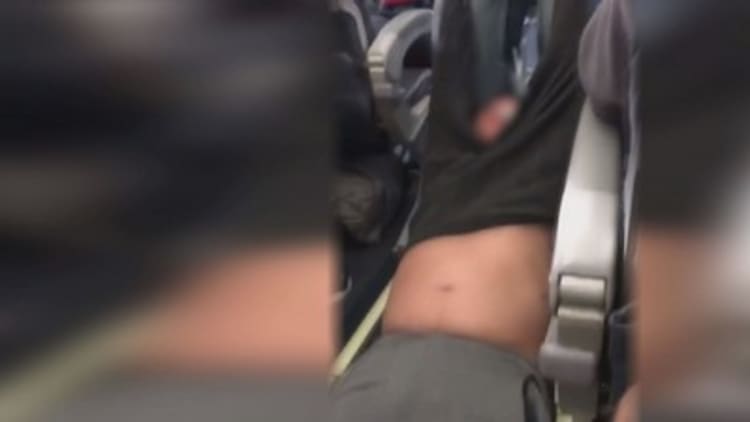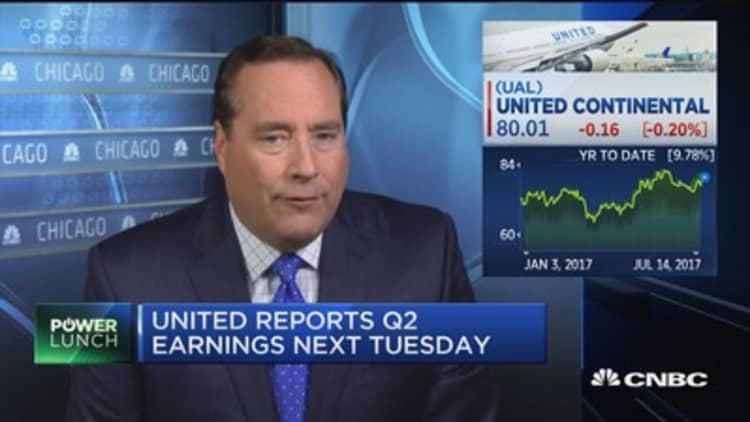
Ten-thousand dollars could buy a diamond ring or renovate a home.
Apparently it's not enough to compensate for getting bumped from a flight.
Twenty percent of Americans think no amount of money makes up for getting bumped, even $10,000, according to a survey by PolicyGenius, an insurance comparison website. Nearly half would require $2,000 to $10,000 to feel compensated, and 70 percent said anything below $2,000 isn't worth it. The website surveyed 1,500 U.S. adults online in July.
Yet getting booted has its perks, according to travel experts. Flight bumps occur when airlines have more passengers booked than seats available, offering compensation to anyone who volunteers to change their flight.
So when is it a good time to raise your hand or keep quiet?
"Bumping has a bad reputation, and if you need to get to where you're going right on time, it's obviously a bad thing," said Julian Mark Kheel, a senior writer at travel site The Points Guy. "But if you have the flexibility, and your schedule allows for it, it might be a great tool."

For one, bumping can usher in decent discounts for passengers who know how to strike a deal. Volunteers are essentially competing against other passengers in a giant airfare auction, with airlines favoring volunteers who ask for the least amount of compensation, Kheel said.
"It is a balance between how much money you can get and how much airlines will pay the lowest bidder," added Kheel, who said he would personally not accept anything less than $400.
Airlines typically offer vouchers at first, dangling incentives in the form of free flights or discounted miles. Gabe Saglie, senior editor for deal site Travelzoo, said passengers should always ask for cash, which "comes with fewer loopholes" and "lets you walk away with something you feel is more tangible."
Travelers can also push for more than cash, said Kheel. They might also ask for compensation to cover any extra costs incurred as a result of the delay: Think meal vouchers, airport transportation and hotel.
"Anything that's going to come out of your pocket, ask for it," he said.
Even being involuntarily bumped can work out in your favor, said Adam Goldstein, co-founder and chief executive of fare site Hipmunk. Passengers are involuntarily denied boarding when not enough volunteers step up to change their flights, although this scenario is relatively rare.
Bumping has a bad reputation, and if you need to get to where you're going right on time, it's obviously a bad thing. But if you have the flexibility, and your schedule allows for it, it might be a great tool.Julian Mark Kheelsenior writer, The Points Guy
In fact, involuntary bumping is at an all time low. The first six months of 2017 had a bumping rate of 0.52 per 10,000 passengers, the lowest ratio since 1995, according to the U.S. Department of Transportation.
"People worry way too much about this," Goldstein said. "To begin with, the chances you're going to get involuntarily bumped is low, and the chances of it being catastrophic [to your plans] are very low. There's so much more stuff to worry about when traveling."
Travelers whose plans aren't flexible enough to accommodate a bump can take several steps to lessen the risk.
Those include checking in at least 24 hours in advance, securing an assigned seat and joining the loyalty program of a singular airline. Flying during earlier hours or less crowded days like Tuesday and Thursday, as opposed to Monday or Sunday, can also diminish the risk, said Saglie.


